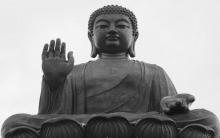यह जानते ही विरूढक आपे से बाहर हो गया। ‘इन लोगो ने मेरे पिता को भी धोखा दिया और अब मेरा भी अपमान कर रहे है’ यह कहते हुए उसने संपूर्ण शाक्य समुदाय का ही नाश कर दिया। संक्षेप में यह उस समय के गणतंत्रों के मध्य के प्रेमसंबंधों, विश्वास तथा प्रजातंत्र की स्थिति को दर्शाने वाली एक कहानी है।
Author:hari
Let us now examine some of the salient features of Poetics expounded by Alaṅkāra-sudhānidhi.
अतः उस समय क्या किया जा सकता था जब विदेशी आक्रांताओ ने युद्ध के सारे नैतिक मूल्यों (अर्थात् धर्म) की परवाह किये बिना हिंसात्मक आक्रमण किये। इस्लाम के रक्त रंजित आक्रमणों के समक्ष हमारी सभी युद्ध कौशल की योजनाऍ तथा राजनैतिक अनुमान अनुपयुक्त सिद्ध हुए। अनेक भागों की अपनी विशाल सर्वश्रेष्ठ कृति ‘इंडियन काव्य लिटरेचर’ में विशाखादत्त के मुद्राराक्षस के संबंध में लिखते हुए ए.के.वार्डर कहते हैं –
In our country, it is not difficult to find instances where extreme religiosity makes one forget worldly duties. It is quite common to find educated people who,in the garb of renunciation and devotion, have shut their eyes to filth in society and country. If our śraddhā in dharma had been seen in our contemporary societal and political life, our country would not have to suffer from perpetual famine and fear of enemies[1].
3. Nature of the Text, Authorship Problems
Madhyama-vyāyoga, Dūta-vākya, Dūta-ghaṭotkaca, Karṇa-bhāra, and Ūru-bhaṅga are the other plays authored by Bhāsa based on the Mahābhārata. It is hard to say if there were more plays in the Bhāsa-nāṭaka-cakra. We have been able to place our hands on only these for now. In some sense, we can say that the cakra is complete with these. The Mahābhārata is the story of the kṣāttra of the Pāṇḍavas and Kauravas. From a poetic perspective, the yuddha-pañcaka constitutes the heart of the epic.
कालिदास ने अश्वघोष के कथ्य का रचनात्मक तथा सकारात्मक सुधारण किया था। समुद्रगुप्त ने भी यही सुधारण अशोक के संबंध में किया। हर किसी को इसे रचनात्मक सुधारण के रुप में समझने की आवश्यकता है। अशोक-कानिष्क – अश्वघोष की त्रयी तथा समुद्रगुप्त – चन्द्रगुप्त द्वितीय – कालिदास की तुलना से लाभान्वित हो सकते है। जिस प्रकार अश्वघोष अपने पश्चातवर्त्ती कवियों के लिए आदर्श न बन सके वैसे ही अशोक और कानिष्क भी अपने बाद के किसी बडे सम्राट के आदर्श नहीं बन पाये। जब कि कालिदास अपने पश्चातवर्त्ती प्रत्येक कवि के लिए ‘गुरु’ एवं ‘कवि- कुलगुरु’ सम पूज्य रहे है। उसी प्रकार समुद्रगुप्त तथा







